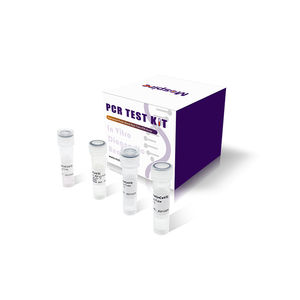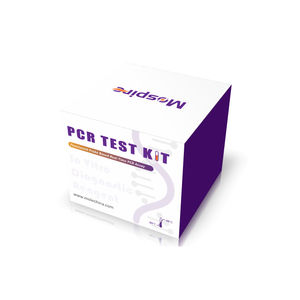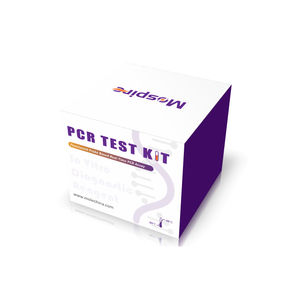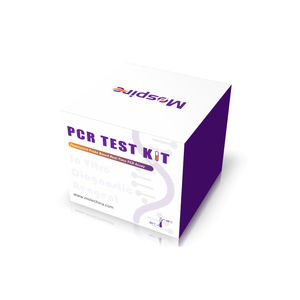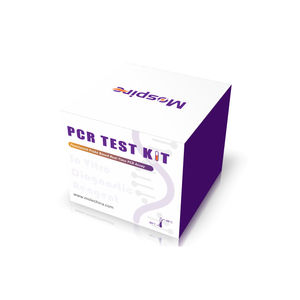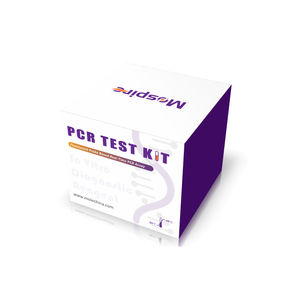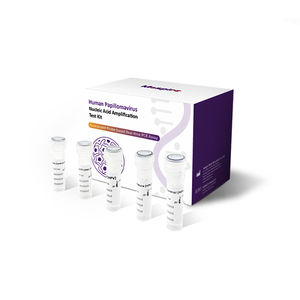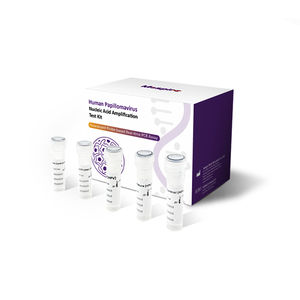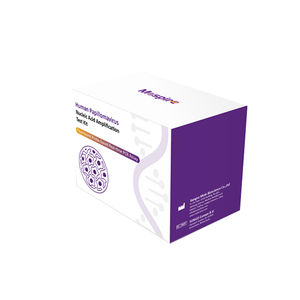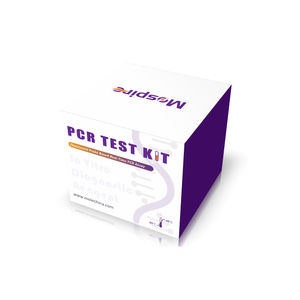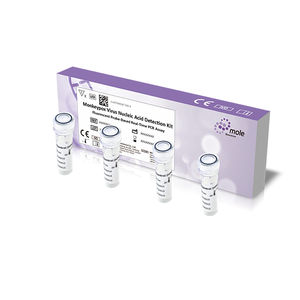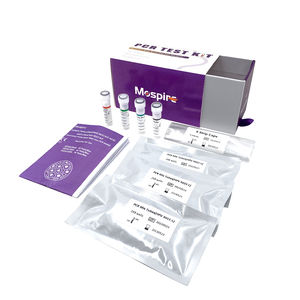
- Laboratory
- Laboratory medicine
- Flu test kit
- Jiangsu Mole Bioscience

- Company
- Products
- Catalogs
- News & Trends
- Exhibitions
Infectious disease test kit R213T050B0C2COVID-19flupneumonia
Add to favorites
Compare this product
Characteristics
- Applications
- for infectious diseases, COVID-19, flu, pneumonia
- Tested parameter
- for genes
- Micro-organism
- SARS-COV-2, coronavirus, influenza A, influenza B, respiratory syncytial virus
- Sample type
- sputum, nasal, throat, for biological samples
- Analysis mode
- for PCR
Description
2019-Novel Coronavirus, Influenza Virus, Respiratory Syncytial Virus Nucleic Acid Test Kit-Predicator of Respiratory Infectious Disease
This kit is intended for the qualitative detection of the ORF1ab gene of the 2019-Novel Coronavirus (2019-nCoV, SARS-COV-2), M1 gene, or NS1 gene of Influenza Virus, and F gene of RSV in the specimens including Oropharyngeal swabs, sputum, and Bronchoalveolar lavage fluid.
Currently, the patients infected by the novel coronavirus are the main source of infection; asymptomatic infected people can also be infectious. Based on the current epidemiological investigation, the incubation period is 1 to 14 days, mostly 3 to 7 days. The main manifestations include fever, fatigue, and dry cough. Nasal congestion, runny nose, sore throat, myalgia, and diarrhea are found in a few cases.
Influenza is a kind of highly acute respiratory infectious disease caused by the infection of influenza virus, it can be sudden onset and rapidly spread in a short term, resulting in different degrees of prevalence, with a high incidence rate and a certain mortality rate. The symptoms caused by influenza A and B virus are similar. The most obvious characteristics are acute high fever and cough. Other symptoms include chills, headache, muscle ache, fatigue, nasal congestion, and runny nose, etc.
Human respiratory syncytial virus (RSV) is a single-stranded, negative-strand, RNA virus belonging to the Paramyxoviridae family, and is in the genus Pneumovirus. RSV is one of the most common viruses to infect children worldwide and increasingly is recognized as an important pathogen in adults, especially the elderly.
Catalogs
R213T050B0C2
2 Pages
Related Searches
- Assay kit
- Solution reagent kit
- Blood assay kit
- Molecular biology reagent kit
- Serum assay kit
- Plasma assay kit
- Infectious disease detection kit
- Blood rapid diagnostic test
- Laboratory reagent kit
- Rapid lateral flow test
- Enzyme reagent kit
- Immunoassay rapid diagnostic test
- Molecular test kit
- Cassette rapid diagnostic test
- Rapid virus test
- Respiratory infection test kit
- Whole blood detection kit
- Serum rapid diagnostic test
- Plasma rapid diagnostic test
- Clinical assay kit
*Prices are pre-tax. They exclude delivery charges and customs duties and do not include additional charges for installation or activation options. Prices are indicative only and may vary by country, with changes to the cost of raw materials and exchange rates.


